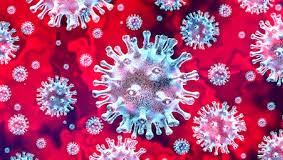 By Bonnie Adams, Managing Editor
By Bonnie Adams, Managing Editor
Region – Over the past few weeks there has been one story leading nearly every news broadcast – the coronavirus, now known as COVID 19. As this disease, which originated in China and now is in a number of other countries around the world, spreads, there is also a lot of misinformation being spread as well. As such, that misinformation is propagating fear mongering, creating increased prejudice and stigma against certain groups such as Asians, and dealing a blow to the world economies as governments rush to stop the spread of the virus.
Katie Taylor, PharmD, BCPS, is a principal with Gore & Company and a clinical pharmacist with over 20 years in biotech/pharma strategy consulting.
Recently in a conversation she explained in simple layman’s terms what COVID 19 is, what the risk is to Americans at this point in time and what sensible measures should be taken to not only protect yourself from the virus but also influenza, which is actually much more prevalent and of concern.
The coronavirus is actually not just one virus but a group of viruses, she said. COVID 19, the newest virus, was first detected in a bat in Wuhan City, Hubei Province, China. And then like many other viruses, Taylor said, it mutated to humans.
“It’s similar to MERS (Middle East respiratory syndrome) and SARS (Severe acute respiratory syndrome) as to how it spreads,” she said. “It spreads when you are in close proximity to someone who is infected and they cough or sneeze without covering up. You must be exposed to an infected individual to catch COVID 19.”
As of now, there has been only one person in Massachusetts who was suspected of having COVID 19. That person, Taylor said, was in Wuhan at one point, and then when back in the US, after showing possible signs of the virus, was in isolation for the recommended 14 day period. The person showed no symptoms after that period.
Part of the problem, she noted, is that the coronavirus presents in a very similar way to influenza.
If someone is not feeling well, and has the classic symptoms of the flu, such a high fever, cough, sore throat, muscle and body aches, headache and fatigue, they can see their physician and have a rapid flu test to see if they indeed do have the flu. Once diagnosed, there are medications that can help them recover.
As of right now, there is no test for COVID 19, although researchers are currently working on one, as well as a vaccine and possible treatments.
“The risk for the average person in the United States at this time for COVID 19 is very, very low,” Taylor said. “There has to be a ‘smoking gun,’ some kind of connection, such as the person was with an infected person or in a known area where there have been outbreaks.”
Most at risk for COVID 19 would also be those who are most risk for the flu, Taylor said, such as those over age 65, or patients with a compromised immune system or an underlying respiratory disease.
And as far as purchasing face masks in the hopes of protecting yourself from the virus? Not only is this not currently recommended, she said, but those who purchase these without actually needing them are diverting them from those who truly do need them, such as health care professionals or those who use them on a regular basis.
Although officials are learning more about COVID 19 as time goes on, they are looking at this as they do other infectious diseases, she noted. It is hoped that like other viruses, it will run its course through the winter months, as the flu does, and then, if not totally eliminated, then slow down significantly.
Although researchers are in the early stages of developing a vaccine for COVID 19, everyone who can, should consider getting a flu vaccine, Taylor stressed.
“It’s the concept of ‘herd immunity,’” she explained. “It’s helping to protect the more vulnerable in the population who cannot get the vaccine. If you are sick, then you risk infecting them.”
“COVID 19 is an evolving issue, but at this time there is no need for any additional precautions besides those recommended for influenza. Cover your cough, wash your hands, seek medical attention if you do fall ill, but other than that stay home until you are well.”
“It is also very important to only listen to reputable media outlets for news on COVID 19 to prevent unneeded worry and action,” she added.
Taylor recommends the Center for Disease Control (cdc.gov/covid19) and State of Massachusetts COVID 19 site (https://www.mass.gov/guides/information-on-the-outbreak-of-2019-novel-coronavirus-covid-19)

















